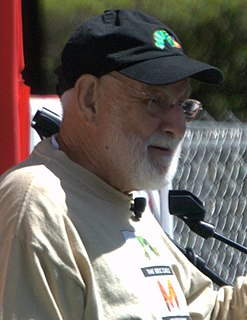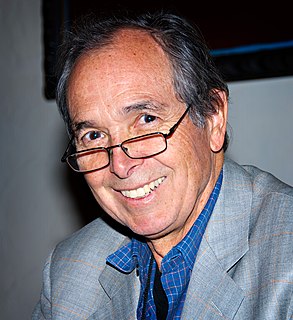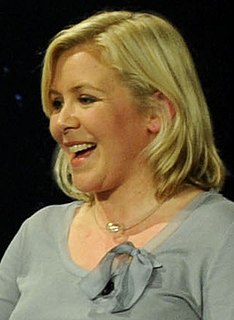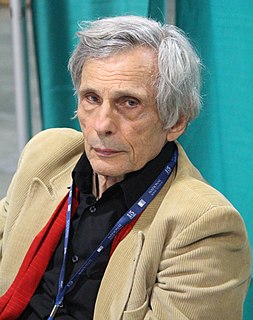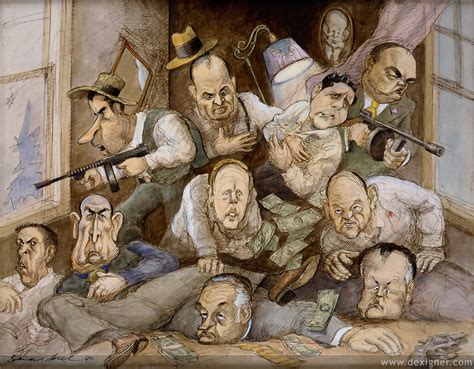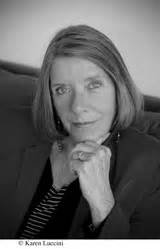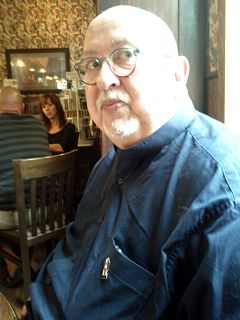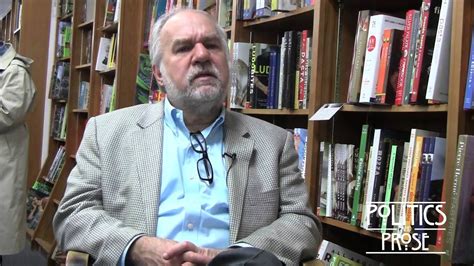Top 888 Novelist Quotes & Sayings - Page 14
Explore popular Novelist quotes.
Last updated on November 12, 2024.
And when I'd be reporting in Israel, Palestinians would say, the Jews they're not like us, and the Jews would say the same things about the Palestinians, they don't want what we want. And I never bought it as a reporter and I don't buy it as a novelist. I think, you know, the sound of somebody crying for their lost child sounds the same.
In a sense, the first (if not necessarily the prime) function of a novelist, of ANY artist, is to entertain. If the poem, painting, play or novel does not immediately engage one's surface interest then it has failed. Whatever else it may or may not be, art is also entertainment. Bad art fails to entertain. Good art does something in addition.
The difficulty of saying I-a phrase from the East German novelist Christa Wolf. But once having said it, as we realize the necessity to go further, isn't there a difficulty of saying 'we'? You cannot speak for me. I cannot speak for you. Two thoughts: there is no liberation that only knows how to say 'I'; there is no collective movement that speaks for each of us all the way through.
I encourage all novelists to move to TV right now, that is the way to go. I was living in New York working at a bank as a day job about seven years ago. I was writing novels at night and decided, "Wow, there's so much great TV, and they're telling the complex, interesting, psychologically nuanced stories that, as a novelist, you dream of telling. And it's a healthy, exciting, thriving medium - that's where I need to be."
The problems you have as a novelist tend to have to do with making a living and trying to find ways to supplement the income you get from writing novels. For a lot of writers, that involves teaching. In my case, so far, I've been able to get by working in Hollywood with this TV stuff I've been doing. And it's very important, because my wife is a writer, too, and we don't have health insurance through any employer.
Artists are just entrepreneurs. It's up to them to figure out how or if they can make a monetary profit from their passion ? from their calling, as I discussed above. Sometimes they can. Musicians can sell music, even in the face of piracy. Or they can sell their services ? concerts, etc. Painters and other artists can profit in similar ways. A novelist could use kickstarter for a sequel or get paid to consult on a movie version.
Neanderthal man listened to stories, if one may judge by the shape of his skull. The primitive audience was an audience of shock-heads, gaping around the camp-fire, fatigued with contending against the mammoth or wooly-rhinoceros, and only kept awake by suspense. What would happen next? The novelist droned on, and as soon as the audience guessed what happened next, they either fell asleep or killed him.
Michel Houllebecq is surely the novelist who best describes contemporary phobias and fears. He also succeeds perhaps like no other in portraying the postmodern character of our society. He addresses the possibilities of genetics at times, or Islamism, and infuses all of it with a certain amount of absurdity. I get a very strong sense of that in "Submission." The way he toys with the absurd makes him an author sui generis, one who stands out from the others.
The problem of the novelist who wishes to write about a man's encounter with God is how he shall make the experience--which is both natural and supernatural--understandable, and credible, to his reader. In any age this would be a problem, but in our own, it is a well- nigh insurmountable one. Today's audience is one in which religious feeling has become, if not atrophied, at least vaporous and sentimental.
... But all the feelings that evoke in us the joy or the misfortune of a real person are only produced in us through the intermediary of an image of that joy or that misfortune; the ingeniousness of the first novelist was in understanding that, in the apparatus of our emotions, since the image is the only essential element, the simplification which consists of purely and simply suppressing the factual characters is a definitive improvement.
Every genuinely literary style, from the high authorial voice to Foster Wallace and his footnotes-within-footnotes, requires the reader to see the world from somewhere in particular, or from many places. So every novelist's literary style is nothing less than an ethical strategy - it's always an attempt to get the reader to care about people who are not the same as he or she is.
As both an essayist and science fiction and fantasy novelist, I write about and for the future. I talk about the past to remind us that what we believe has always been true - that men and women are somehow static categories, or that men in power has always been the default, or that same-sex love affairs were always taboo - has not always been thus.
To me, the newspaper business was a way to learn about life and how things worked in the real world and how people spoke. You learn all the skills - you learn to listen, you learn to take notes - everything you use later as a novelist was valuable training in the newspaper world. But I always wanted to write novels.
Snowden is almost preternaturally prepossessing and self-possessed. I think of a novelist whose dream character just walks into his or her head. It must have been like that with you and Snowden. But what if he'd been a graying guy with the same documents and far less intelligent things to say about them? In other words, how exactly did who he was make your movie and remake our world?
A woman journalist in England asked me why Americans usually wrote about their childhood and a past that happened only in imagination, why they never wrote about the present. This bothered me until I realized why - that a novelist wants to know how it comes out, that he can't be omnipotent writing a book about the present, particularly this one.
How can a novelist achieve atonement when, with her absolute power of deciding outcomes, she is also God? There is no one, no entity or higher form that she can appeal to, or be reconciled with, or that can forgive her. There is nothing outside her. In her imagination she has set the limits and the terms. No atonement for God, or novelists, even if they are atheists. It was always an impossible task, and that was precisely the point. The attempt was all.
Without a doubt, I was born to want to make cinema, but the kind of cinema I want to make is not like commercial movies, which I enjoy myself, but I wanted to be the kind of filmmaker who wrote original work, sort of like a novelist would who deals with who we are and our times or our relationships.
Spending a lot of time away from home was strange. My parents visited me, obviously, but I was in hospital a lot, alone. And then when my health had improved a bit and I was in a sick-bed in the house, with the life of the house going on around me, that was very vivid for me. I always think that's a bit like the position of a novelist in a novel, going through drafts: there but not there, one remove from reality.
There are two different ways of writing a novel. The first I call the traditional father way, when the novelist slightly situates himself or herself above the text and knows what each and every character is going to do. It's a bit like engineering. I've never felt close to that tradition. I like the second way, which relies a bit more on intuition.
I always have done work on mythic relations since I started writing. I really want to be a novelist, or at least a writer of imaginative work... I do try to make my critical studies imaginative and try to write them in ways that are more like literature than philosophy, but I have disappointed myself because I am still so wedded to criticism.
I read John Irving's novel 'The World According To Garp' when I was about 14 or 15. It was the first grown-up book that I had read. It is the story of a young man who grows up to be a novelist. I finished it, and I wanted to write a book that made the reader feel the way I felt at the end of that, which was sort of both bereft and elated.
From about ninth grade on, I knew I was a writer at heart. I had fantasies of being a great novelist, but I thought that seemed like an iffy way to try to make a living. So I tried journalism while in college, and really liked it. But even in journalism, I've always pursued ways to be somewhat literary, whether writing a column or writing books.
The stupidity of people comes from having an answer for everything. The wisdom of the novel comes from having a question for everything. The novelist teaches the reader to comprehend the world as a question. There is wisdom and tolerance in that attitude. In a world built on sacrosanct certainties the novel is dead.
I don’t think ‘science fiction’ is a very good name for it, but it’s the name that we’ve got. It is different from other kinds of writing, I suppose, so it deserves a name of its own. But where I can get prickly and combative is, if I’m just called a sci-fi writer. I’m not. I’m a novelist and poet. Don’t shove me into your damn pigeonhole, where I don’t fit, because I’m all over. My tentacles are coming out of the pigeonhole in all directions.
For me, it is about using everything that is there and using the gaps in the record, figuring out why the gaps might be there. And then when you move on to the level of what historians said, laying the interpretations side by side. You also have to look back at the documents and make your own judgments. What the record says and what people say about it. A novelist can fill the gaps in a way that a biographer cannot.
Black Box is not a statement about injustice committed against Sephardi Oriental Jews or about the extremism of religious Jews or the lack of imagination of the old Israeli elites. It's a human story, in my view, first and foremost about a mystical communion between enemies. This is the inner story of the novel. This is my business as a novelist. It is not about positions and ideas.
A man I know who writes and aspires to be a novelist does very little reading, and he's not that successful. But I think it's because he's like the kid who wants to be a ballplayer and never goes to the ballpark or tries to hit a ball. So I'd say reading is the most important thing that I do, besides the actual writing. I'm always asking as I read, "How did the writer do this? Why do I suddenly have tears in my eyes? Why am I crying?"
'Empire of Self' is a loving portrait of a very difficult man. Jay Parini, himself a gifted novelist, poet and biographer, has gone very deep into the 'black energy' of Gore Vidal's relentless narcissism and megalomania. Parini envisions an epic battle between Vidal's angelic and demonic sides, yet there's very little of the angel in Vidal.
I like grit, I like love and death, I'm tired of irony. ... A lot of good fiction is sentimental. ... The novelist who refuses sentiment refuses the full spectrum of human behavior, and then he just dries up. ... I would rather give full vent to all human loves and disappointments, and take a chance on being corny, than die a smartass.
Usually when I drank too much, I could guess why I did so, the objective being to murder a state of consciousness that I didn't have the courage to sustain--a fear of heights, which sometimes during the carnival of the 1960s accompanied my attempts to transform the bourgeois journalist into an avant-garde novelist. The stepped-up ambition was a commonplace among the would-be William Faulkners of my generation; nearly always it resulted in commercial failure and literary embarrassment.
So long as a novelist works selfishly for the pleasure of creating character and situation corresponding to his own illusions, ideals and intuitions, he will always produce something worth while and natural. Directly he takes himself too seriously and begins for the alleged benefit of humanity an elaborate dissection of complexes, he evolves a book that is more ridiculous and tiresome than the most conventional cold cream girl novel of yesterday.
My only passions were books and music. As you might guess, I led a lonely life… Not that I knew what I wanted in life - I didn’t. I loved reading novels to distraction, but didn’t write well enough to be a novelist; being an editor or a critic was out, too, since my tastes ran to the extremes. Novels should be for pure personal enjoyment, I decided, not part of your work or study. That’s why I didn’t study literature
That perhaps is your task--to find the relation between things that seem incompatible yet have a mysterious affinity, to absorb every experience that comes your way fearlessly and saturate it completely so that your poem is a whole, not a fragment; to re-think human life into poetry and so give us tragedy again and comedy by means of characters not spun out at length in the novelist's way, but condensed and synthesized in the poet's way--that is what we look to you to do now.
I don't mind when people are telling me about their 1971 Firebird, but it's the same thing as people telling me about their car or something. It's fine if you have an interest. By talking with me, though, you could be interviewing a novelist about guitars. It's the same thing, except I don't write that well either.
Good girls like myself need subversion. Being solemn, I aspire to comedy. Being a novelist, I aspire to the musical. Being organized, I aspire to luminous chaos. Loving the power of grammar and the fine distinctions of language, I seek the part of the mind I didn't know was there, the part 'sheer,' 'no-manfathomed,' 'cliffs of fall.
I was so sure I wanted to be a novelist. I would spend hours and hours every day writing. Little stories about nothing in particular. I recall one about someone with an illness. But my dedication wasn't really healthy, and it reached the point where I wasn't sleeping. My mum would tell me, 'You need to go outside to get some fresh air.'
Predictions are uttered by prophets (free of charge); by clairvoyants (who usually charge a fee, and are therefore more honored in their day than prophets); and by futurologists (salaried). Prediction is the business of prophets, clairvoyants, and futurologists. It is not the business of novelists. A novelist's business is lying.
I'm completely surrounded, not only my father, but also my three brothers, and Sergio, my husband, all four of them work in film. Some are writers, or directors, or cinematographers, all of them. I'm surrounded by men that make films, so much that at some point I felt there was no more room in the family for another filmmaker.For many years I was only working as novelist or writing screenplays for others to direct.
Children make better readers than adults. They read as carefully as I write; adults read as a means of getting off to sleep. I get letters saying 'I have read your book seventeen times.' If you're an adult novelist and you get that letter, you should be afraid. You're being stalked. Kids always read them seventeen times!
When a novelist manages to describe or evoke something you thought or felt, without realizing that other people also found themselves in the same situation and had the same feelings, it creates that same solidarity. Maybe it's better to think of humor not as a tool to express the solidarity, but a kind of by-product. Maybe the realization "I'm not on my own on this one" is always, or often, funny.
This Vladimir Brusiloff to whom I have referred was the famous Russian novelist. . . . Vladimir specialized in gray studies of hopeless misery, where nothing happened till page three hundred and eighty, when the moujik decided to commit suicide. . . . Cuthbert was an optimist at heart, and it seemed to him that, at the rate at which the inhabitants of that interesting country were murdering one another, the supply of Russian novelists must eventually give out.
Obviously cheap sentimentality isn't something any good novelist wants to traffic in, but I think it's a problem if you consider it to be the most egregious of all creative sins. I think it's a problem if you consider it the thing to be avoided at all cost. I think it's a problem of you're not willing to risk the consequences of that kind of emotionalism under any circumstances. Then you wind up in the cul-de-sac of irony.
The complete novelist would come into the world with a catalog of qualities like this. He would own the concentration of a Trappist monk, the organizational ability of a Prussian field marshal, the insight into human relations of a Viennese psychologist, the discipline of a man who prints the Lord's Prayer on the head of a pin, the exquisite sense of timing of an Olympic gymnast, and by the way, a natural instinct and flair for exceptional use of language.
When you take a child who's hollering like hell, sit him on your knee, and say "once upon a time", you stop him hollering. As long as you go on telling him a story, he will listen. Novelists who neglect this fundamental effect do so at their peril. They become what is known as the experimental novelist, and an experimental novel is not really a novel at all.
I read not so long ago about the construction of a large telescope in Chile's Atacama Desert, where rainfall can average a millimetre a year and the air is fifty times as dry as the air in Death Valley. Needless to say, skies over the Atacama are pristine. The pilgrim astronomer ventures to the earth's ravaged reaches in order to peer more keenly at other worlds, and I suppose the novelist is up to something similar.
For a spy novelist like me, the Edward J. Snowden story has everything. A man driven by ego and idealism - can anyone ever distinguish the two? - leaves his job and his beautiful girlfriend behind. He must tell the world the Panopticon has arrived. His masters vow to punish him, and he heads for Moscow in a desperate search for refuge.
The only excuse for a novelist, aside from the entertainment and vicarious living his books give the people who read them, is as a sort of second-class historian of the age he lives in. The "reality" he missed by writing about imaginary people, he gains by being able to build a reality more nearly out of his own factual experience than a plain historian or biographer can.
The Treatise of the Three Impostors is a book that enjoyed centuries of notorious nonexistence until (as Voltaire would say) it became necessary to invent it. Georges Minois writes with empathy, erudition, and a novelist's sense of buildup and timing, weaving in the parallel story of Europe's courageous freethinkers. In the face of today's social and even legal pressures against criticizing religion, it is good to see an honorable French tradition asserting itself.

